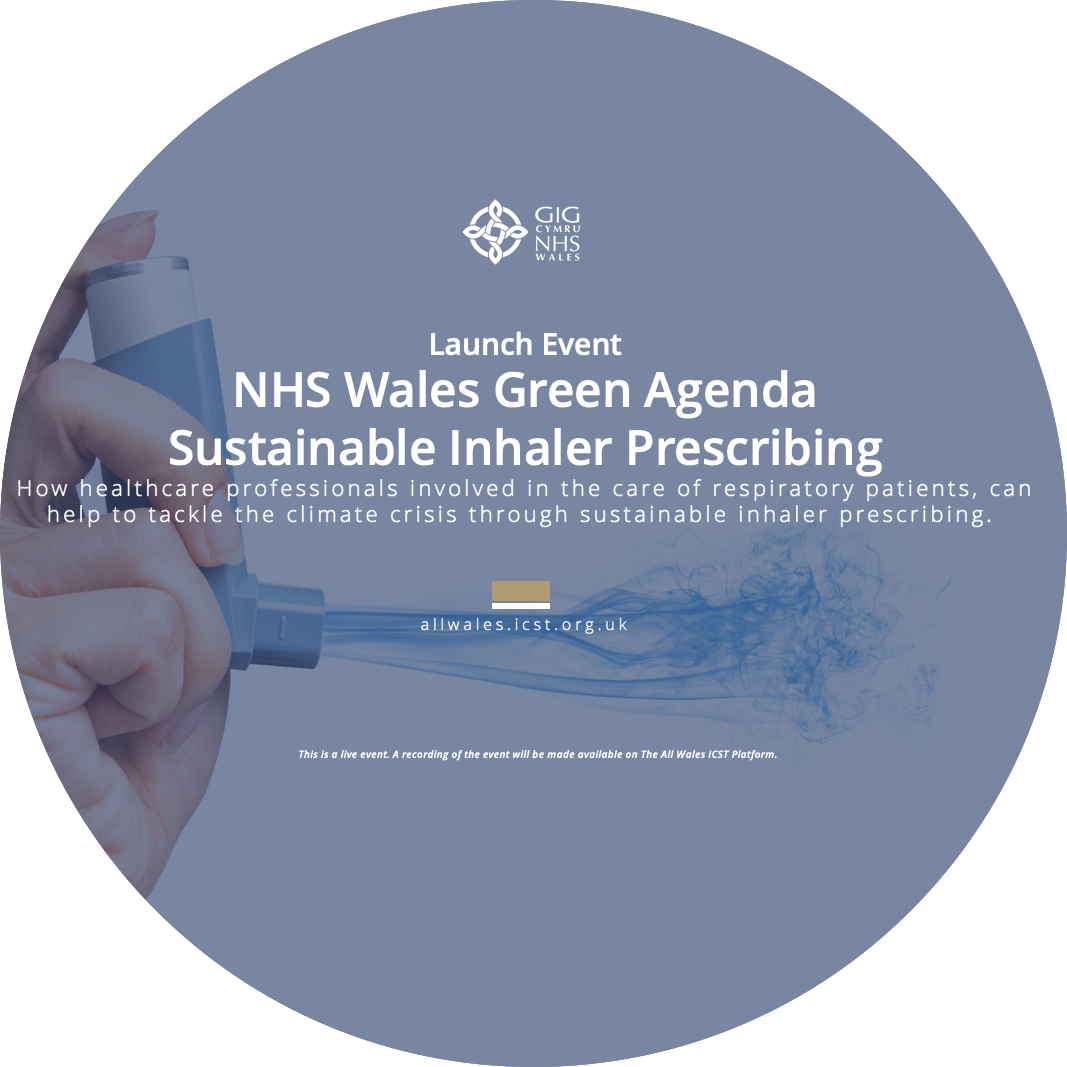Tutorials

Sustainable inhaler prescribing in primary care

Minimising the environmental impact of Asthma and COPD management

Considerations for children with Asthma

Metered-dose inhalers contain man made liquefied, compressed hydrofluorocarbons gases that act as a propellant to atomise the drug to deliver the medicine to the patient. HFCs, although not ozone depleting, are still potent greenhouse gases, and contribute to global warming and climate change. In the UK approximately 70% of inhalers used are MDIs which is much higher than many other European countries.
The aim of this National Welsh Standard, is to reduce NHS Wales’ carbon footprint by reducing the percentage of metered dose inhalers prescribed, from 70% to less than 20%, by 2025. The Green Agenda will outline which inhalers are better for the environment, provide clarity on how to switch inhalers safely (adults and children) and how to follow up patients following the switch.
With climate change directly responsible for detrimental health impacts, the climate crisis has been described as the greatest health threat ever seen, as well as the greatest health opportunity. Millions of lives can be saved from more ambitious climate action.
In particular, inhaler prescribing can have a huge environmental impact.
Joining us in the studio is Dr Stacey Harris, Paediatrician and Welsh Clinical Leadership Fellow in Sustainable Healthcare 2021/2022




All-Wales COPD Management and Prescribing Guideline |
|---|
All-Wales Adult Asthma Management and Prescribing Guideline |
|---|
A short slide presentation for HCPs to use to help make sustainability a priority